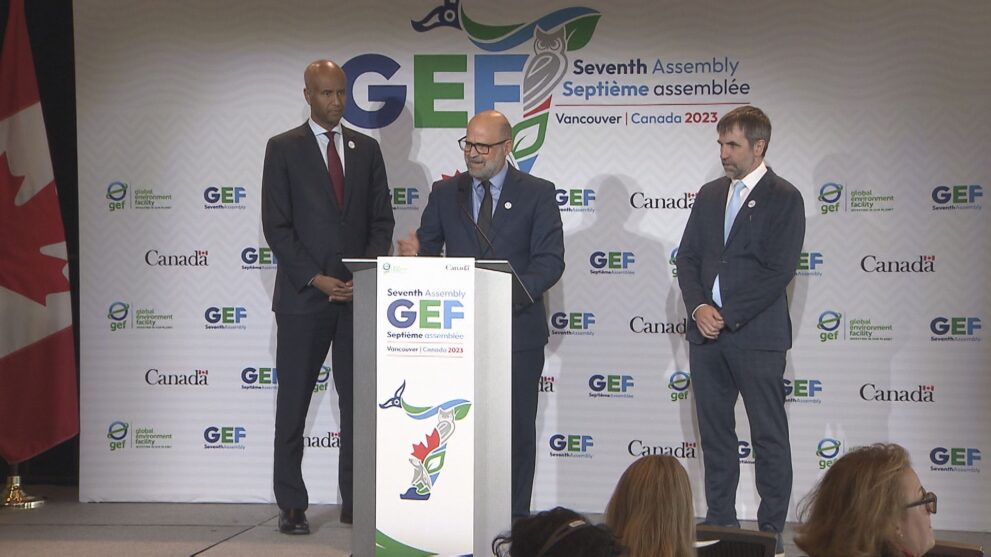Ottawa – The fourth session of the Intergovernmental Negotiating Committee (INC-4) wrapped up in Ottawa today, marking significant progress in the development of a legally binding global agreement to end plastic pollution by 2040. As the host country, Canada played a pivotal role in the progress made during this session, setting the stage for international ambition and cooperation at the final negotiating session (INC-5) in the Republic of Korea.
INC-4 brought together thousands of participants from 175 countries from governments, civil society, youth, industry, the financial sector, subnational governments, and Indigenous partners. Canada’s delegation was led by the Honourable Steven Guilbeault, Minister of Environment and Climate Change, and by Parliamentary Secretary Julie Dabrusin. Canada’s delegation included representatives from National Indigenous Organizations, provinces and territories, and Members of Parliament.
Canada worked with all delegations to land a roadmap, capturing the important progress made to strengthen consensus and bridge gaps among member states. This roadmap includes an agreement for work to continue between negotiating sessions on key topics, the adoption of a legal drafting group, and active and ongoing contributions from Indigenous peoples, civil society, academia, and business representatives. The Ottawa Roadmap confirms there is momentum on reaching a globally binding treaty by the end of the year.
Around the INC-4 events, Canada continued to show that it is doing its part to tackle plastic pollution, both at home and abroad. Minister Guilbeault announced a number of domestic initiatives, including the creation of the Federal Plastics Registry, a new tool to compel plastic producers and other companies across the plastics value chain to help monitor and track plastic from the time it is produced up to its end of life. The Minister also announced over $3.3 million in funding to support Canadian businesses and organizations that are developing innovative and targeted solutions to advance Canada’s zero plastic waste agenda.
In addition to these important domestic announcements, Minister Guilbeault, on behalf of the Honourable Ahmed Hussen, Minister of International Development, announced that Canada would be providing $10 million in funding for the Global Plastic Action Partnership to support the ongoing development of partnerships in developing countries to tackle plastic pollution, as well as $5 million for the Global Program for the Blue Economy (PROBLUE) to reduce marine plastic pollution, preserve marine biodiversity, promote sustainable economic development, and foster gender equality in coastal economies.
To ensure a diverse and inclusive INC-4, Canada and the World Wide Fund for Nature co‑hosted a high-level Partnerships Day on Earth Day, April 22, and a ministerial session to identify collective opportunities for ambition and galvanize momentum toward successful negotiations. Canada also hosted a Plastic Action Zone, from April 23 to 29, at the National Arts Centre in Ottawa, which offered a public space for partners and stakeholders to host events and share actions, innovations, and experiences to help drive ambition and prevent plastic waste and pollution throughout the life cycle of plastics.
Canada looks forward to working with the Republic of Korea and all nations, Indigenous peoples, civil society, and industry to land a first-of-its kind global plastics treaty in Busan this December.
“Canada is committed to reaching a final negotiated agreement at INC-5 in the Republic of Korea before year end. We are no longer talking about “if” we can get there, but “how.” It would mark one of the most significant environmental decisions since the Paris Agreement and the Kunming-Montréal Global Biodiversity Framework. We are doing everything we can to raise the international profile of the plastic pollution crisis so that the agreement gets the global attention it deserves to cross the finish line.” – Steven Guilbeault, Minister of Environment and Climate Change
“Excessive plastic waste is choking out biodiversity. Canada is taking bold action and making targeted investments to help address this issue in the most vulnerable places in the world, where people depend on healthy marine life and thriving ecosystems for their livelihood and survival. As fellow citizens of this shared planet, we will not stand by. Canada continues to work with partners to reach local communities where help is needed most and where global impacts will be seen for generations to come.” – Ahmed Hussen, Minister of International Development








